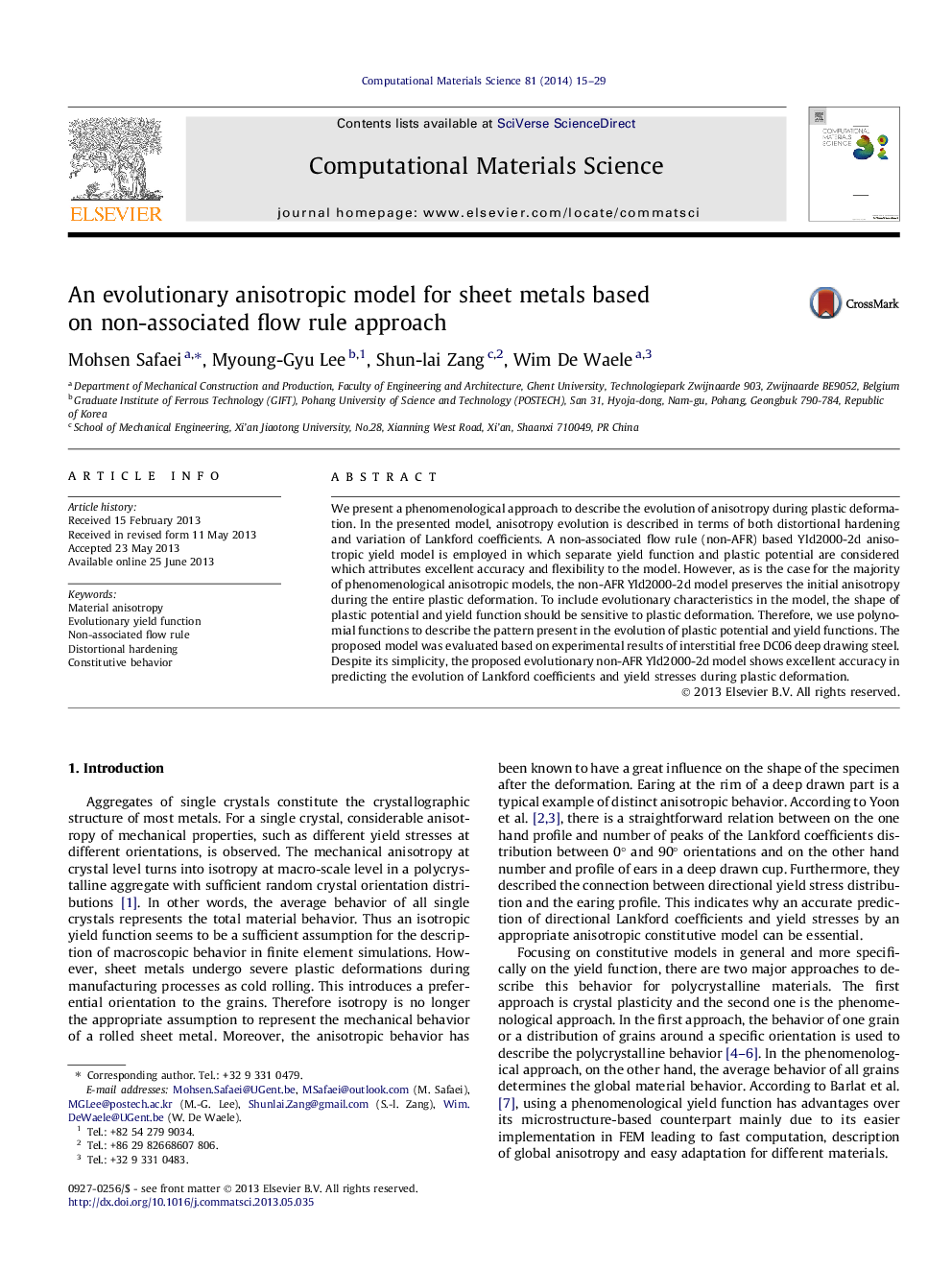| Article ID | Journal | Published Year | Pages | File Type |
|---|---|---|---|---|
| 1560823 | Computational Materials Science | 2014 | 15 Pages |
•Evolution of anisotropy was evaluated by the non-associated flow rule based model.•Material parameters were defined as polynomial functions of equivalent plastic strain.•Prediction capability between non-AFR and AFR was quantitatively compared.•The new model could predict the evolution of r-value and yield stress with considerable accuracy.
We present a phenomenological approach to describe the evolution of anisotropy during plastic deformation. In the presented model, anisotropy evolution is described in terms of both distortional hardening and variation of Lankford coefficients. A non-associated flow rule (non-AFR) based Yld2000-2d anisotropic yield model is employed in which separate yield function and plastic potential are considered which attributes excellent accuracy and flexibility to the model. However, as is the case for the majority of phenomenological anisotropic models, the non-AFR Yld2000-2d model preserves the initial anisotropy during the entire plastic deformation. To include evolutionary characteristics in the model, the shape of plastic potential and yield function should be sensitive to plastic deformation. Therefore, we use polynomial functions to describe the pattern present in the evolution of plastic potential and yield functions. The proposed model was evaluated based on experimental results of interstitial free DC06 deep drawing steel. Despite its simplicity, the proposed evolutionary non-AFR Yld2000-2d model shows excellent accuracy in predicting the evolution of Lankford coefficients and yield stresses during plastic deformation.
